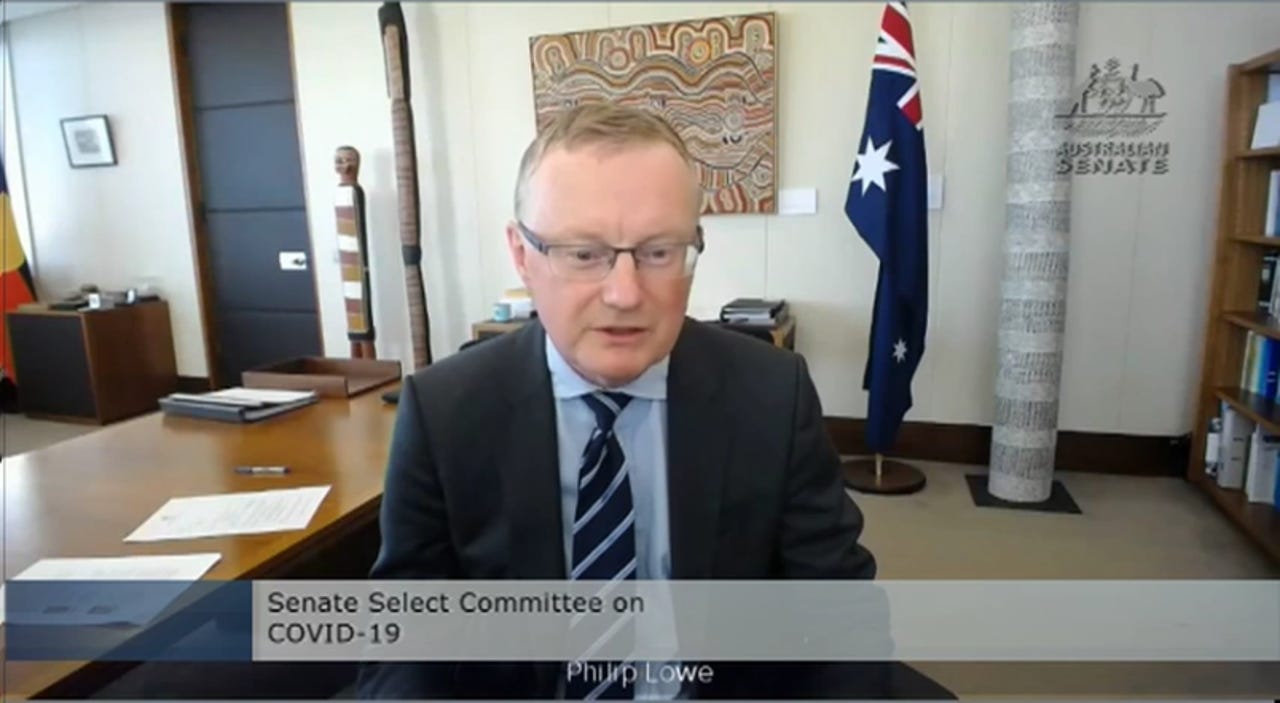RBA says entrepreneurial 'dynamism' key to a post-coronavirus Australian economy


Reserve Bank of Australia Governor Philip Lowe
Reserve Bank of Australia (RBA) governor Philip Lowe believes part of the key for getting the nation's economy back in the black as it emerges from the COVID-19 pandemic will be entrepreneurship and a change in the way regulation is applied.
Lowe appeared before the Senate Select Committee on COVID-19 on Thursday, discussing mostly the economic impact coronavirus will have on the Australian economy.
According to Lowe, some focus needs to be on making sure Australia is a great place for businesses to expand, invest, innovate, and hire people, as it will be key in ensuring recovery.
"Most of the analysis that's being done on [the tax] system through the various reports come to the conclusion that it's not optimally designed for growth. The way we tax consumption, income, and land, is not optimal from a growth perspective," Lowe said.
See also: Coronavirus: From startups to supercomputers, how tech is trying to help tackle COVID-19
"Another area is our approach to regulation and the incentives for entrepreneurship and innovation that we establish through both our culture and through the tax system."
Pointing to Prime Minister Scott Morrison's address to the National Press Club earlier this week, Lowe said in addition to the country's industrial relations system, and the skills and education -- human capital -- systems, the way Australia selects infrastructure projects should also be reconsidered.
"In each of those areas have been numerous reports over the past decade, so I think the best advice I can give is for people to read those reports and take the best ideas -- and there has been no shortage of ideas -- but what there has been a shortage of is an ability in the political and social system to build a consensus about implementing some of those ideas," he said.
He said the challenge hasn't been deciding what the ideas are, but rather, it's been building the social and political consensus and building the coalitions to implement some of those ideas.
"My fear has been that if we don't tackle some of these issues, then we'll just kind of meander along -- the economy will be okay, but we will not return to the type of growth in living standards that we saw over the past 20 years," Lowe told the committee.
"I think we can return to stronger growth in our living standards. But we do need to address these areas."
Hesitant to share his views further on the current tax measures in place, Lowe decided to point his responses in the direction of how regulation has historically stifled entrepreneurship.
"I think, over the past 20 years, whenever a problem has emerged in society, we've generally responded to that with additional regulation because the sense is we don't want mistakes so we regulate to stop mistakes happening, which is perfectly sensible, but that process is also limiting the ability to seize the upside," Lowe said.
"We stopped the downside through regulation but the culture that's coming together with that regulation is limiting the upside and the dynamism in the economy.
According to Lowe, the economy has "aggressively" become less dynamic.
"I fear that one result of the virus, one of the shadows cast by the virus, is that we're going to become even less dynamic and be more conservative, more cautious," he said.
"I can see real benefits in reinvigorating the sense of dynamism in the economy and regulation is one way of doing that -- but it's broader than that, it's kind of a culture and our approach to when we see things going wrong, do we regulate them or do we kind of have a different approach?
"I fear that over time with them too far in the direction of regulation … limits the other side, the upside as well."
While he said March and April was a period of tremendous uncertainty, he noted the economy has done a bit better than was originally feared. But he said reinvigorating the dynamism in Australia's economy would have to be a critical issue over the next few years to ensure the economy remains solid.
RELATED COVERAGE
- Aussie finance regulators work alongside startup scene in the name of innovation
- Reserve Bank asks industry to focus on innovating on top of Australia's NPP
- Westpac questioned on entrepreneurship-stifling regulatory environment
- Stone and Chalk demands for new strategy to support Australia's startup fintech sector
- How small businesses can deal with getting regulated (TechRepublic)